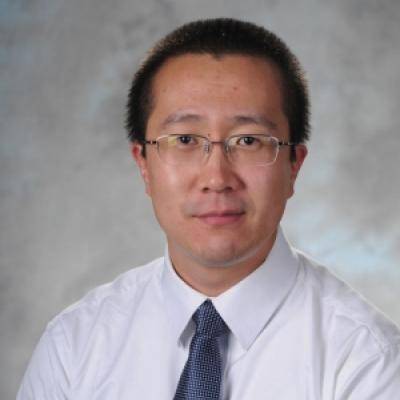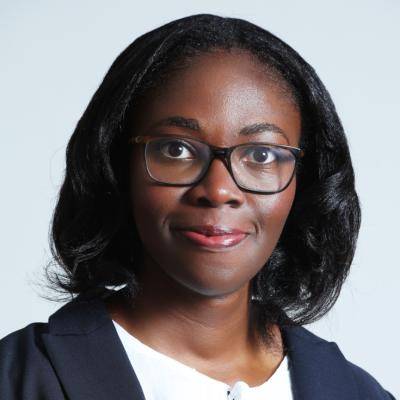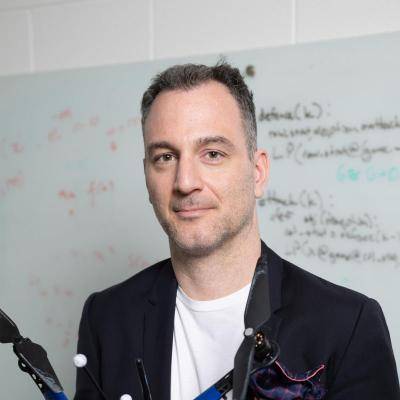Sun, Tsikata, and Vamvoudakis recognized for their contributions to aerospace engineering
Three Daniel Guggenheim School (AE) professors Wenting Sun, Sedina Tsikata, and Kyriakos Vamvoudakis have been elected to the 2024 Class of Associate Fellows by the American Institute of Aeronautics and Astronautics (AIAA).
"I am very proud to see our dedicated faculty inducted into the 2024 Class of Associate Fellows. Their achievements and contributions have strengthened our school and the field of aerospace engineering. Their commitment to excellence inspires us all, and we congratulate them wholeheartedly on this well-deserved recognition,” said AE Interim Chair Tim Lieuwen.
The grade of Associate Fellow recognizes individuals “who have accomplished or been in charge of important engineering or scientific work, or who have done original work of outstanding merit, or who have otherwise made outstanding contributions to the arts, sciences, or technology of aeronautics or astronautics.” To be selected as an Associate Fellow an individual must be an AIAA Senior Member in good standing, with at least 12 years of professional experience, and be recommended by three AIAA Associate Fellows.
“The AIAA Associate Fellows personify the innovation that drives our industry forward,” said Dan Dumbacher, AIAA executive director. “The members of the Class of 2024 Associate Fellows embody the ingenuity and commitment that are crucial for developing solutions to the complex questions raised across the aerospace community. On behalf of the Institute, we recognize the families, friends, and colleagues who support the Associate Fellows as they contribute in such a meaningful way to the aerospace community.”
Sun was selected for “contributions to and innovative research on plasma-assisted combustion.” His research focuses on combustion kinetics, combustion simulation, and new technologies to enable combustion in harsh environments, such as combustion in hypersonic flows and combustion at very high-pressure conditions. He also developed a high-pressure shock tube with a unique capability, allowing the investigation of combustion kinetics for future power generation systems.
Tsikata was selected for “pioneering work in developing novel plasma diagnostic methods and applying them to advance the theory and simulation of plasma processes in electric thrusters.” Her research interests lie primarily in the fundamental nature and applications of magnetized plasmas, with a focus on the development of advanced diagnostics, analysis methods, control, and new plasma devices. Her research has been applied to the study of instabilities and electron features in Hall plasma thrusters for space propulsion and in other magnetized plasma environments relevant to materials processing and accelerator physics.
Vamvoudakis’ was selected for “significant contributions to learning-based control and security of aerospace vehicles”. He specializes in control theory, game theory, cyber-physical systems, safe autonomy, and reinforcement learning. His research revolves around autonomous systems that constantly self-adapt, self-heal, self-protect, and self-optimize in unknown environments. He is a recognized expert on reinforcement learning and reinforcement learning games.


